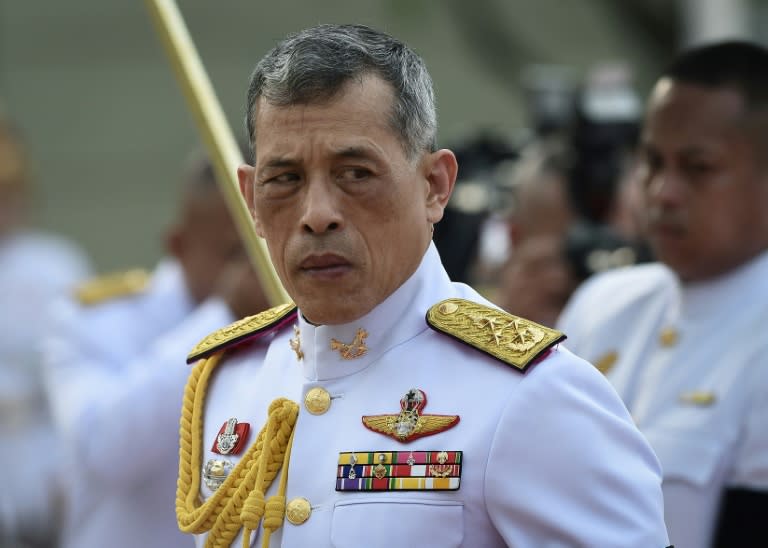Thai king signs junta's new constitution
Thailand's king signed a new military-backed constitution on Thursday that strengthens the army's hand in government and puts the country on the path to polls after three years of junta rule. The military says the charter -- Thailand's twentieth since 1932 -- will curb unrest in the politically-split kingdom and keep out corrupt lawmakers. But opponents say the new document means any polls, whose date keeps slipping, will only offer Thais a form of neutered democracy with a fully appointed senate and tough controls on elected politicians. King Maha Vajiralongkorn, who ascended the throne following the October death of his revered father, signed the document in a televised ceremony in Bangkok on Thursday afternoon. In a solemn and ritual-laden affair, the 64-year-old king inked three copies of the charter, which were then stamped by white-clad officials and placed on gilded pillars before the monarch. An official then read the charter's preamble before an audience of political grandees and ambassadors gathered in the ornate throne hall. "This constitution aims to fully rid the country of corruption, abuses of power and prevent corrupt politicians from taking office," the official read, with junta chief Prayut Chan-O-Cha by his side. The charter received popular approval in a referendum last August, although the poll's legitimacy was tainted by a junta ban on campaigning. It has also been edited since then after the new king surprised many by ordering rewrites to articles that deal with royal powers, including the process for appointing a regent. The generals -- who have severely curbed free speech since the coup -- will continue to run the country until new polls, which are unlikely to fall before late 2018. In a national address Thursday evening, junta leader Prayut said the government would begin drafting laws and other preparations for Thailand's return to democracy but cautioned it was still too early to "clearly specify an election date". - Back to the future? - Democracy has only flowered for brief spells in Thailand, where the army has launched more than a dozen coups since absolute monarchy was abolished in 1932. Over the past 10 years, an especially turbulent period dubbed "the lost decade", Thais have witnessed repeated rounds of deadly protests and two military coups that deposed elected governments. Analysts say the current junta is determined to block a political comeback from ousted premiers Thaksin Shinawatra and his sister Yingluck, whose parties have won every poll since 2001. Their billionaire clan is popular among Thailand's rural and urban poor but hated by Bangkok's military-backed elite, who accuse the family of corruption, nepotism and damaging populist policies. In addition to a junta-appointed senate with six seats reserved for the military, the new charter bolsters the powers of the interventionist constitutional court and makes it easier to impeach a civilian leader. The generals have also vowed to draw up a "20-year plan" for the country that any future government will be bound to follow. The latest king-requested changes, revealed to the public for the first time on Thursday, scrapped a new process that had detailed how government bodies could steer the country out of a political impasse. The section was reverted back to a vaguely-worded clause that says any unforeseen issues should be handled based on tradition. That article has stoked controversy in the past with some royalists interpreting it as justification for a palace intervention in politics. Other new edits relieved the king, who spends much of his time in Germany, of needing to appoint a regent whenever he travels abroad. With royal approval secured, the junta's drafting committee will now spend months drawing up organic laws that critics fear could further hem-in political parties, who have been banned from organising since the coup. This week ousted Prime Minister Yingluck Shinawatra, who has been entangled in a negligence trial since the coup that could see her jailed, said she hoped the charter would speed up the kingdom's return to democracy.



